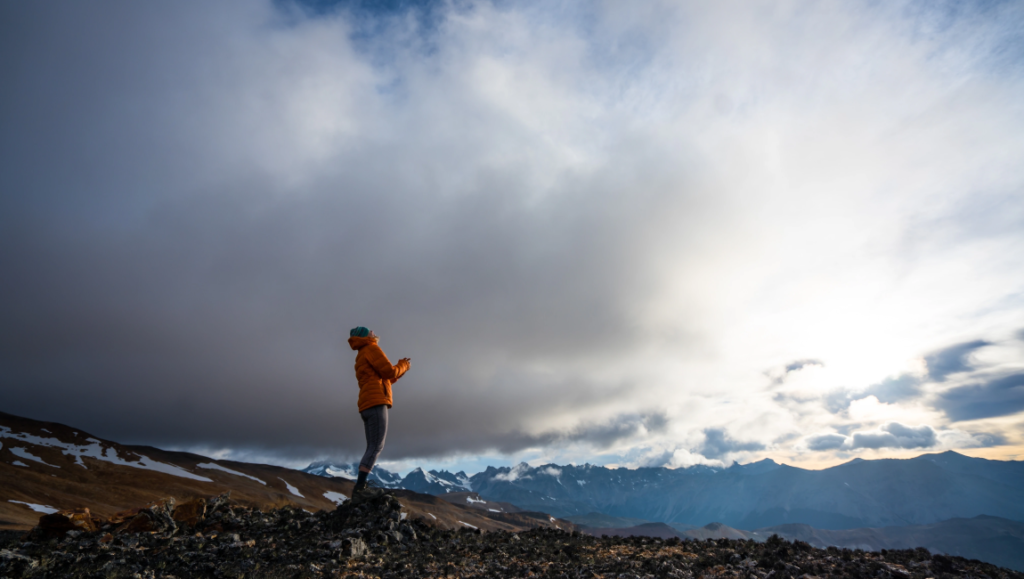Superficially, it would be easy to locate filmmaking duo Jimmy Chin and Elisabeth Chai Vasarhelyi’s documentary inclinations at some loose nexus of survival stories, adventure sport portraiture, and nature photography. If Meru and Free Solo (as well as short The Shark’s Fin) suggested something of a niche rock-climbing sphere of interest, follow-ups The Rescue, Return to Space, and now Wild Life expanded and clarified what motivates and energizes the collaborators’ collective documentary eye: people navigating the extreme fringes of human experience, and the singular psyches that push them to either greatness or madness, depending on who you ask. That latter distinction, of course, assumes a difference, and the directors’ discursive interests are perhaps at their peak of cultural consciousness, what with the very public narratives concerning Kanye West’s ongoing saga and Return to Space’s Elon Musk settling into the role of mad (fake) scientist.
Wild Life is a gentler, less clickbait-y affair than any of Chin and Vasarhelyi’s preceding projects, though it does share a similar logic and plenty of DNA with them, taking up residence in the interstitial space between their preoccupations. We’re firmly rooted back in the natural world after Return to Space’s celestial gaze, but this time we’re devoid of the pointed psychological study of Free Solo, the true-story survival appeal of Meru and The Rescue, and the essential foundation of tension that all three are built upon. We’re here closer to the more abstracted motivational interrogations that The Rescue suggests (but never really commits to), though there’s more scrutability to the subjects this time out. Wild Life is a more explicit and straightforward project as far as its narrative goes: ostensibly, it’s a quick survey of Doug Tompkins, the adventurer, conservationist, philanthropist, and founder of The North Face and Esprit, who passed in a kayaking accident in 2015, as well as those recognizable figures in his orbit, including wife Kristine and lifelong friend (and Patagonia founder) Yvon Chouinard. More specifically, it’s about his and Kristine’s individual efforts at combating climate change and mass deforestation through the private purchase of large swaths of land in Chile and Argentina, with the goal of establishing National Parks to donate back to governments.
Most interestingly, Chin and Vasarhelyi seem more comfortable foregoing traditional storytelling conventions in Wild Life. The potential “narrative” in the case of a man’s life is considerably more extensive than detailing the relatively narrowly scoped processes and incidents that have defined their previous films, and it allows them the opportunity for fluidity. There are talking heads, yes, and there are brief anecdotes of youth and personal evolution, and there are of course the requisite panorama shots that any self-respecting documentary set in somewhere as gorgeous as Patagonia must boast — all the ingredients of a competent but uninspiring doc are here. But Chin & Vasarhelyi allow the film’s disparate parts to swirl around and through each other, its various “movements” imbued by narrative switch-backs and overlaps and curlicues. The film’s destination and general course are forecast, but its waypoints can be surprising.
That said, Wild Life doesn’t entirely pass the documentary sniff test. The material here is primed for the book treatment — and indeed, already received it in 2021’s A Wild Life from author Jonathan Franklin — and doesn’t do much to prove its visual medium bona fides. Free Solo squeezed every drop of tension from a known outcome on the strength of its savvy compositions, while The Rescue established a similar immersiveness with its impressive reconstructions. There’s nothing so formally exciting in Wild Life, its archival footage and contemporary commentary making up the bulk of the runtime. Its rhetorical considerations are also largely ancillary: concerns about the domestic perception of an über-wealthy American buying up millions of acres of land in a foreign country is brought up, but this and all such similar complexities are sidelined in favor of some light environmentalism.
There’s no denying that Wild Life is a flawed film, and less formally ambitious than most of what Chin and Vasarhelyi have before attempted. It can also be a bit willfully tone deaf: while sure to age better than Elon Musk apologetics, it’s a bit strange how placidly the climate change crisis is handled — it might be fatalistic to say, but things are pretty dire if we need to rely on, and celebrate, the benevolence of billionaires, particularly as we live through this pre-apocalypse they’ve so callously led us to. But despite these considerable question marks, Chin and Vasarhelyi remain deeply empathetic filmmakers. The pair are skilled at allowing their subjects to often act as co-conductors in their works, and this latest effort particularly benefits from Kristine’s influence, her articulate reflections and raw grief performing much of the work that lesser directors would have left to biographical exposition. Similar to Sara Dosa’s Fire of Love, there’s an emotional core here that brings plenty of grace to an imperfect film. The world is ending anyway — Wild Life reminds us of the value of lives meaningfully lived.
Published as part of InRO Weekly — Volume 1, Issue 15.


Comments are closed.